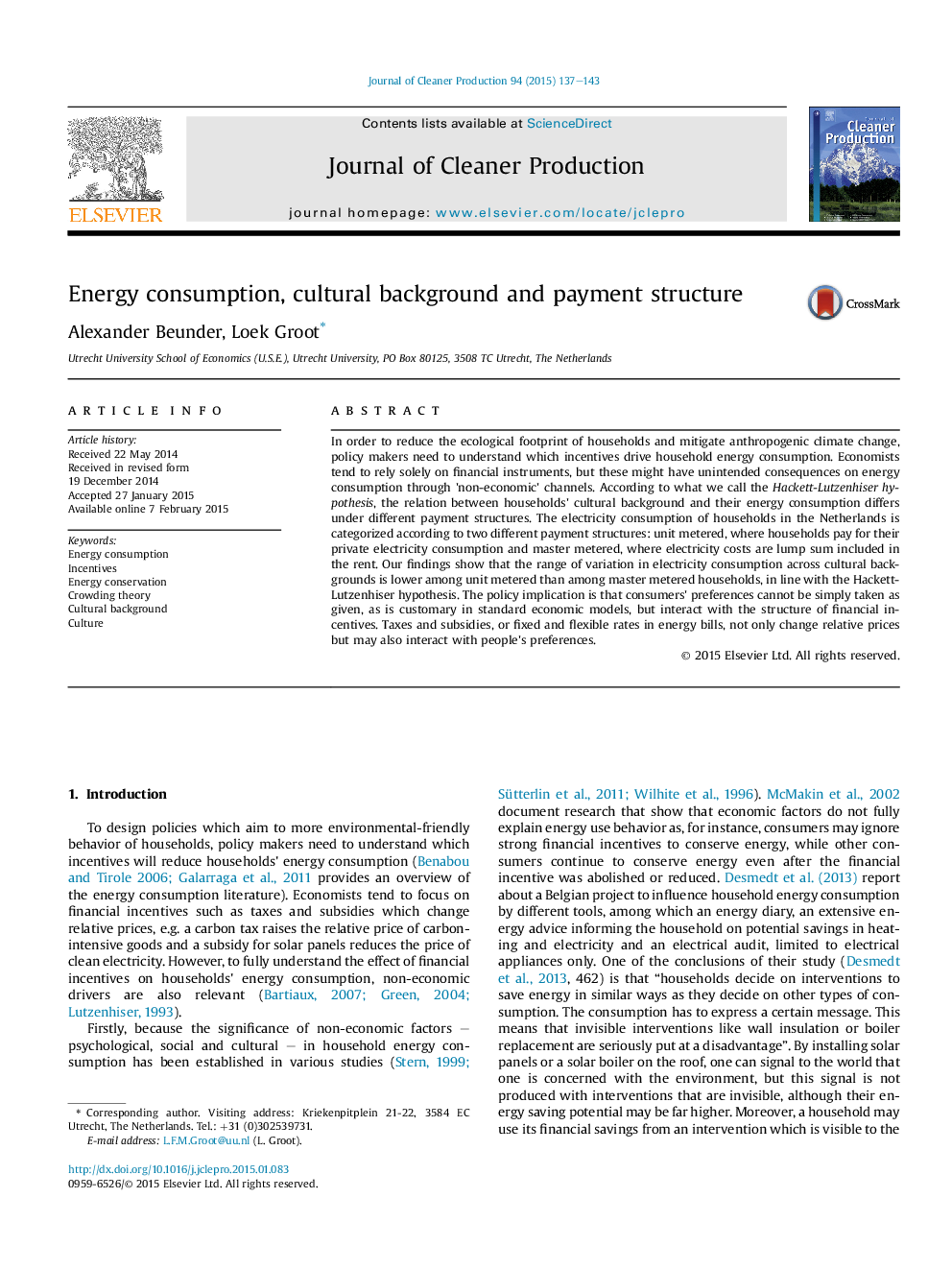| Article ID | Journal | Published Year | Pages | File Type |
|---|---|---|---|---|
| 8104580 | Journal of Cleaner Production | 2015 | 7 Pages |
Abstract
In order to reduce the ecological footprint of households and mitigate anthropogenic climate change, policy makers need to understand which incentives drive household energy consumption. Economists tend to rely solely on financial instruments, but these might have unintended consequences on energy consumption through 'non-economic' channels. According to what we call the Hackett-Lutzenhiser hypothesis, the relation between households' cultural background and their energy consumption differs under different payment structures. The electricity consumption of households in the Netherlands is categorized according to two different payment structures: unit metered, where households pay for their private electricity consumption and master metered, where electricity costs are lump sum included in the rent. Our findings show that the range of variation in electricity consumption across cultural backgrounds is lower among unit metered than among master metered households, in line with the Hackett-Lutzenhiser hypothesis. The policy implication is that consumers' preferences cannot be simply taken as given, as is customary in standard economic models, but interact with the structure of financial incentives. Taxes and subsidies, or fixed and flexible rates in energy bills, not only change relative prices but may also interact with people's preferences.
Related Topics
Physical Sciences and Engineering
Energy
Renewable Energy, Sustainability and the Environment
Authors
Alexander Beunder, Loek Groot,
